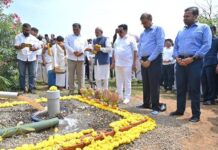
The country strategy and programme evaluation was carried out to assess the results and performance of the IFAD-supported programme in the Philippines from 2003 to 2015 and based on the findings, to come up with recommendations for future partnership between IFAD and the Philippines Government to achieve sustainable rural transformation.
According to the report, the country programme has been particularly strong in promoting gender equality and women’s empowerment. Individual project initiatives contributed to increased incomes and economic opportunities for women and their households, as well as an increase in women’s participation in the decision-making processes – for example, in positions of leadership in irrigators’ associations.
“The evaluation has allowed us to review our achievements and the impact of our work in rural areas,” said Périn Saint Ange, Associate Vice-President and Head of Programmes, IFAD. “The country programme has been strong in promoting gender equality and women’s empowerment and has provided a conducive environment for women to develop microenterprise activities.”
The evaluation also confirmed that development projects supported by IFAD have made notable achievements in improving rural infrastructure for better access to markets and services. These include farm-to-market roads and footbridges. Projects have also boosted participatory development processes with rural communities and local government and improved farmers’ productivity by strengthening irrigators’ associations that manage communal irrigation systems.
The evaluation provides insights for formulating IFAD’s future strategy in the country and recommends that IFAD explore opportunities for both financial and non-financial support.
IFAD has supported a number of knowledge management platforms in the country. On these platforms, government and non-governmental partners are able to share experiences and share information on key issues related to the rural and agriculture sectors. The evaluation has also highlighted that more can be done.
“There is need to further upgrade knowledge management so that it better informs policy discussions and investments. The links between knowledge, policy engagement and the potential for scaling up are essential for the future rural development work being carried out together by the Philippines and IFAD,” says Fabrizio Felloni, Deputy Director of the Independent Office of Evaluation. “It is also important to strengthen project monitoring and evaluation to generate better quality evidence and knowledge.”
The report also highlights the importance of paying greater attention to differences among intended beneficiaries, and monitoring who benefits in future development interventions. The country programme supports the rural poor, within which are indigenous peoples, agrarian reform beneficiaries, fisher folks, women and other marginalized groups.
Since 1978, IFAD has provided US$243.7 million in loans to finance 15 projects in the country for a total project cost of $771.5 million, benefiting 1,742,000 households.
Corporate Comm India(CCI Newswire)

























